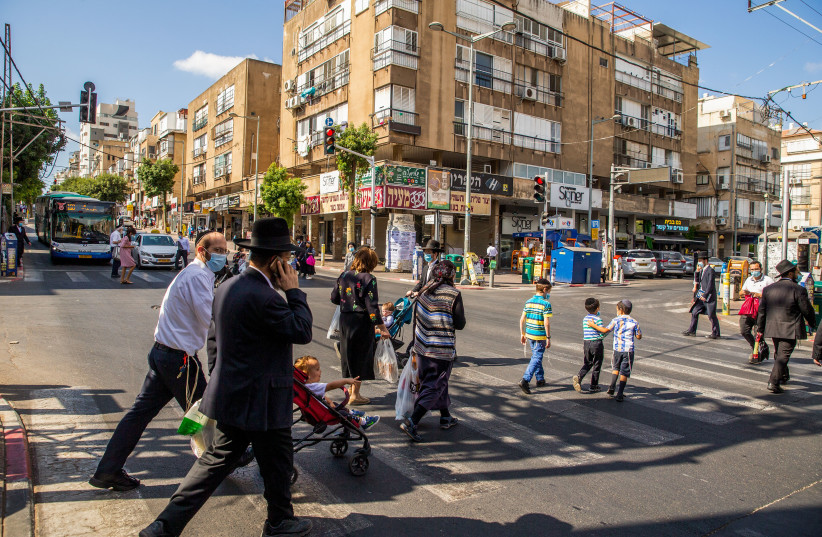Around one in five (21%) of Israelis felt discriminated against in the last year, according to the latest social survey by the Central Bureau of Statistics.
According to the results, 31% of Muslims and 51% of Druze feel discriminated against.
This particular survey has been conducted every year since 2002. The latest one covers answers given in 2022.
The survey provides information on the Israeli population with regard to the following subjects: housing, cars, health, education, Internet usage, employment, vacations, contact with family and friends, voluntary activities, economic situation, satisfaction, and trust.
In 2022, the survey dealt with the following additional topics: Occupational, social, and economic consequences of the coronavirus crisis, the influence of religion, the assessment of democracy in Israel, and the perception of the media.
Some 6,501 Israelis over the age of 20 answered the questions between January 2022 and January 2023.

Nationality, not religion
The feeling of discrimination amongst Muslims was most focused on nationality rather than religion, with 28% of Muslims feeling discriminated against for their nationality while only 21% felt discriminated against for their religion.
Some 42% of Druze felt discriminated against for their nationality and 33% for their religious belief.
With regard to affirmative action, 28% of the Israeli public supports disabled people receiving affirmative action, with soldiers or veterans at 20% and the Ethiopian community at 17% support.
Older people (65+/27%) were more likely to support affirmative action for veterans than younger people (20-44/16%).
The biggest disparity in belief is on whether Arabs should receive affirmative action: 38% of Arabs supported receiving affirmative action while only 2.5% of Jews supported such a move. The haredi community also supported affirmative action for themselves at a similar rate to Arabs with 39% support.
In order to reduce gaps in society, the largest suggestion at 42% was increased investment in education, with 24% supporting increased allowances to weaker societal sectors, with a final 24% encouraging increased employment and job creation.
Jews largely see education as the solution, with 46% supporting increasing education investment. This contrasts sharply with Arabs with one-third as many (16%) supporting increased education investment.
Alternatively, Arabs see affirmative action and increased allowances as preferable to education investment at 42%, while 39% saw creating jobs as the solution.
Secular Jews are also more likely to believe (56%) in educational investment as the solution versus ultra-Orthodox at 24%. Haredim largely agree with the Arabs on this topic with 42% supporting increased allowances.
